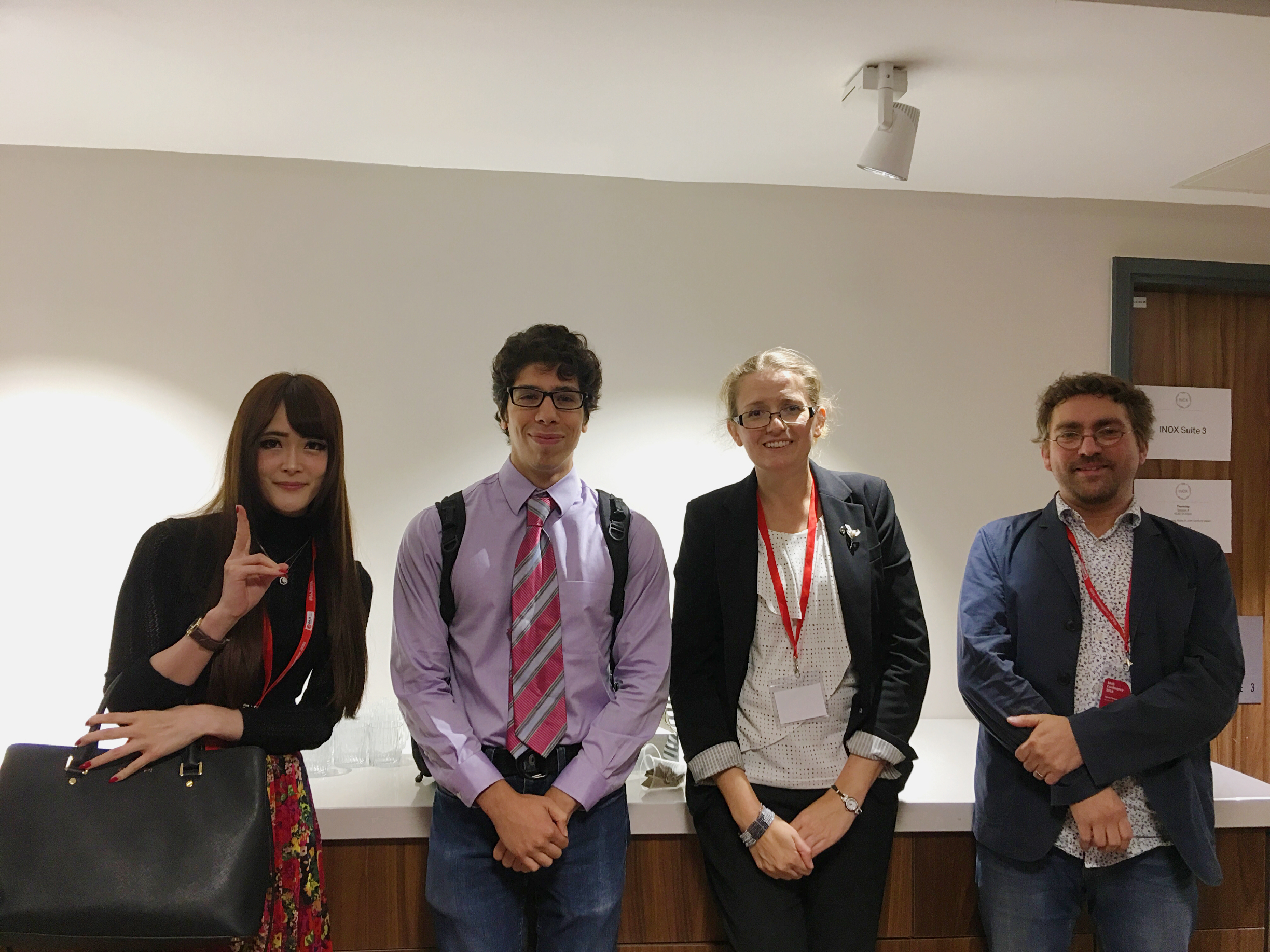
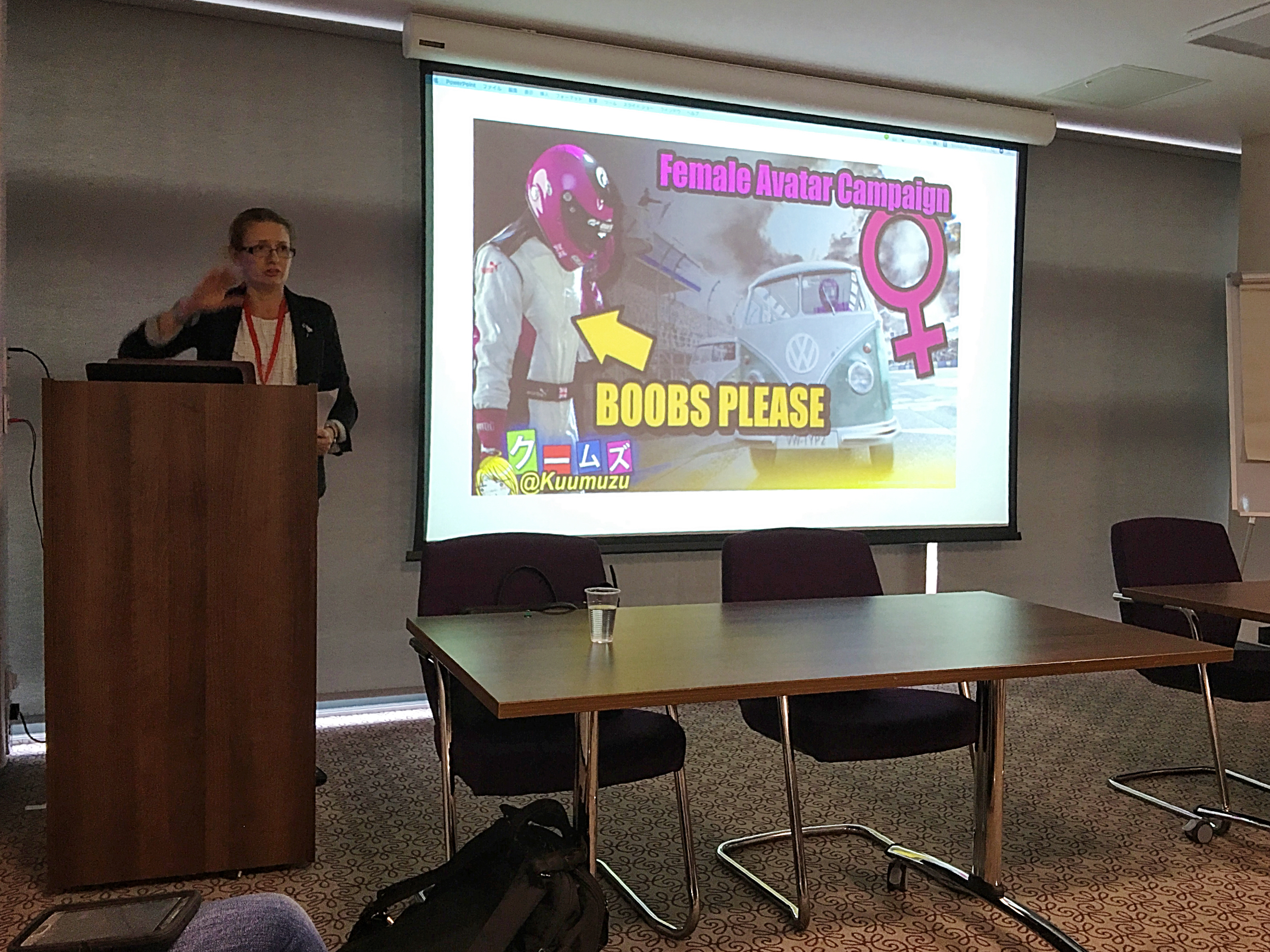
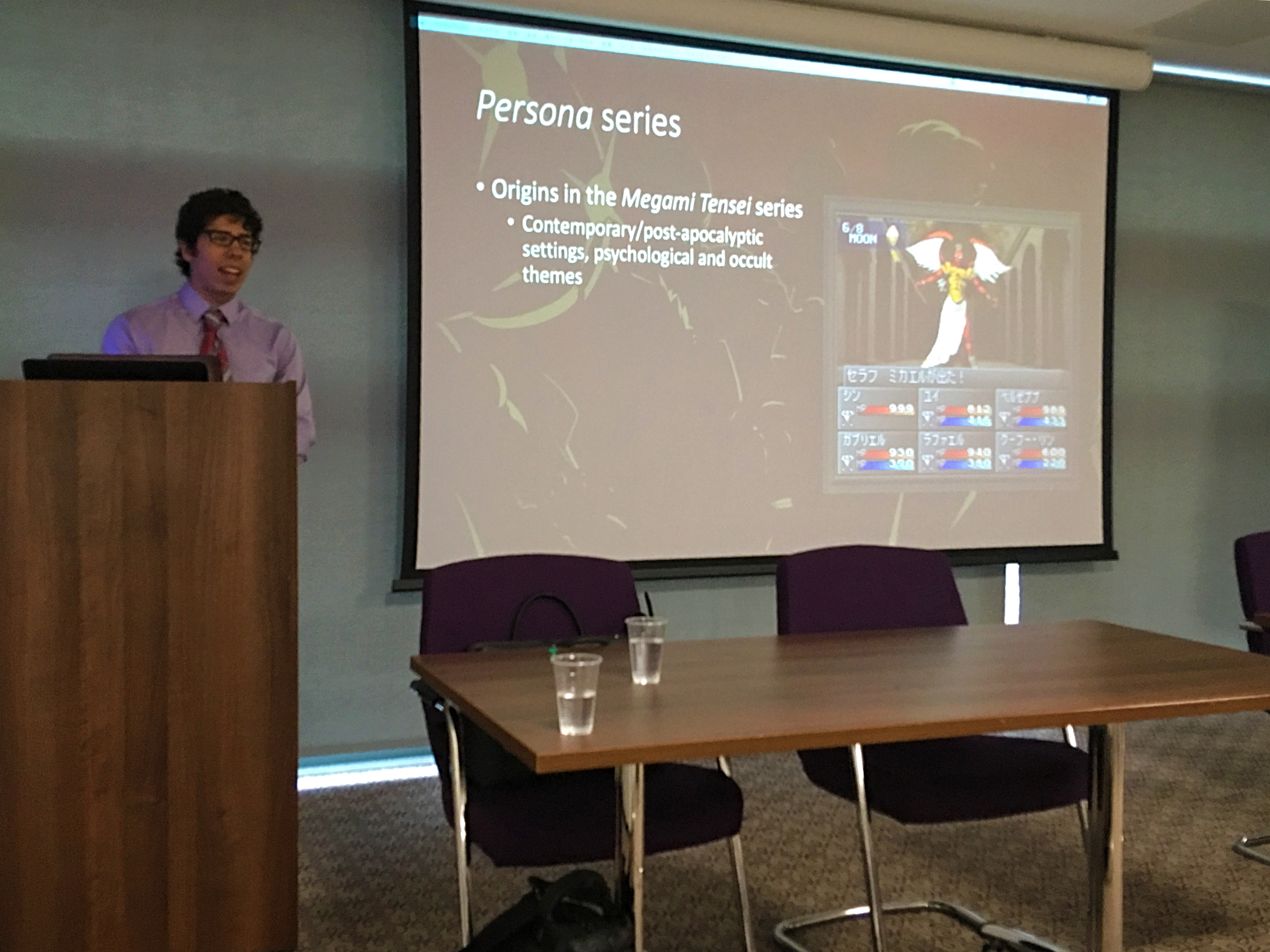
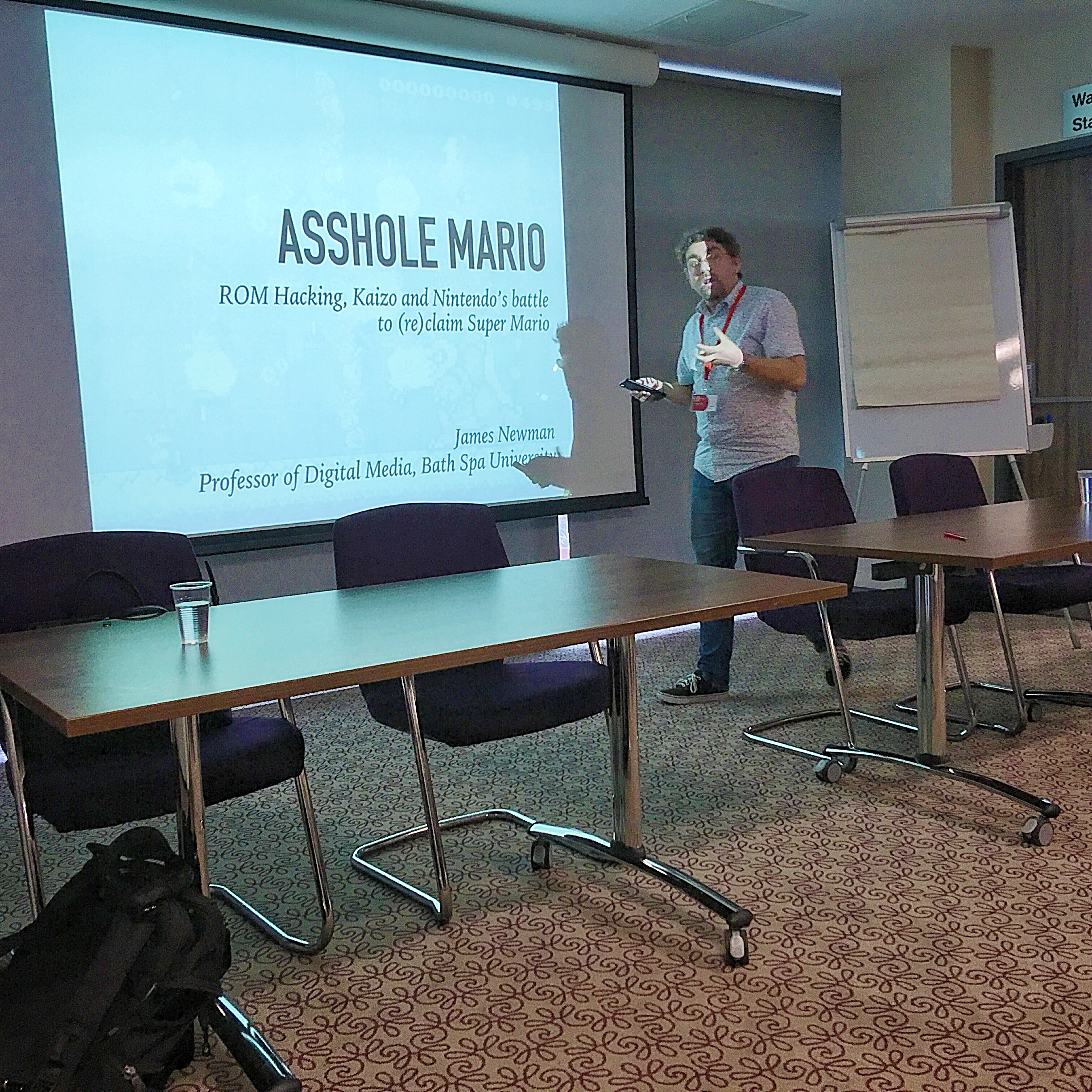
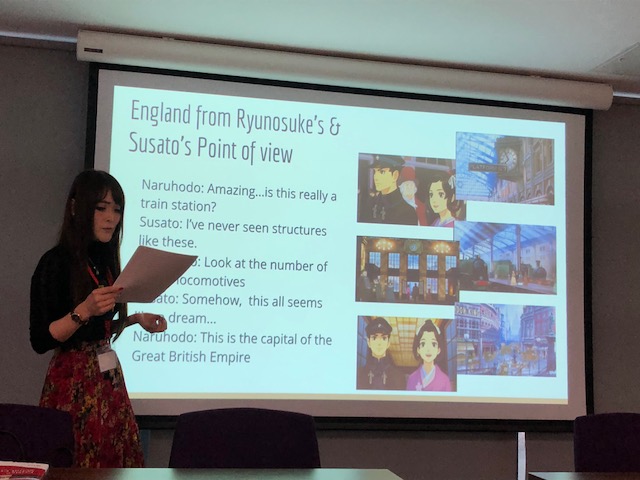
One week ago, I flew out to Sheffield, England to attend a conference organized by the British Association for Japanese Studies. The conference was held between September 5-7th, and it was my first BAJS conference. I met many friendly people there and made some great connections. What’s more, I was part of an amazing panel organized by Dr. Rachael Hutchinson and presented alongside Dr. James Newman and Frank Mondelli. In the spirit of Replaying Japan, our panel explored the conference’s theme (Crisis? What Crisis? Continuity, and Change in Japan) through various critical interpretations of Japanese video games. Scroll down to see what our panel was about!
Aside from our panel, what I particularly liked about the conference were the keynote presentations by Dr. Gennifer Weisenfeld and Dr. Yoshitaka Mori who delivered very different, but informative discussions about how crisis is represented in Japanese visual culture and media, and its relationship to wider national/political discourses. I learned how “disasters are opportunities for radical change and profit” and that “crisis produces new markets using fear as a mobilizing force” as explored in Dr. Weisenfeld’s talk on boukuu domesticity. According to Dr. Yoshitaka, one site of crisis in Japan today is democracy, as he explained how it is associated with leftism and radicalism, which I find quite alarming. The Q & A session facilitated by Dr. Christopher Harding added critical depth and insight to the discussions as well.
In addition to the keynote speakers, I was impressed by the sheer diversity of panels that explored crisis in Japan in so many different ways. Panels that caught my eyes ranged in topics from “Portrayals of Queerness in Popular Culture and the Potential Dangers of New Queer;” to “Generative Fictions: Representations of Pregnancy in Modern Japanese Literature and Manga;” to “The Kimono and its Industry in 21st century Japan--Tales of Crisis Change and Subcultural Appropriation;” to “Major Effects of Minor Changes: The Decision-Making Process under the Second Abe Administration.” I also appreciated the poster sessions that displayed the work of grad students in a really fun and interactive way.
Overall, my first BAJS conference experience was really great and I look forward to the next one.
For more information about the British Association for Japanese Studies, see here.
Thanks to the BAJS Council for the travel bursary.
Stay tuned for my next blog about my encounter with Sherlock Holmes…
In case you missed it here’s our panel abstract:
“This panel examines the Japanese video game industry from the perspective of cultural content and game design, showing how creativity in characterization, world-building and level of difficulty can lead to social critique and industry innovation. Mimi Okabe first analyzes popular titles from the Phoenix Wright (Gyakuten Saiban) series, demonstrating Japan’s ongoing crisis of identity from Meiji to the present, situating Japan on the axis of Orient-Occident and problematizing the imperial past of both England and Japan. Frank Mondelli examines ideology and social critique in Persona 5, set in a politically corrupt contemporary Tokyo in which the player-character must act as an ethical individual to progress. Rachael Hutchinson shifts the discussion to matters of genre, asking which video game genres are more conducive to social or political critique. Racing and fighting games are set against roleplaying, tactical and strategy games, all of which deliver nationalistic or counter-discursive ideology in different ways. Finally, James Newman considers Nintendo’s response to fan creativity in the production of Kaizō game levels in Super Mario Maker – impossibly difficult hacks which could have caused a crisis for Nintendo’s friendly image. Newman demonstrates that Nintendo, far from being a slow monolith incapable of change, seized the opportunity to counter the crisis with corporate flexibility, ultimately reinforcing its own design principles. Together, the papers in this panel aim to show the Japanese game industry as a creative force for social critique and fan engagement, a dynamic site for exploring and problematizing crisis in contemporary Japan” (British Association for Japanese Studies Conference 2018, p. 45).





